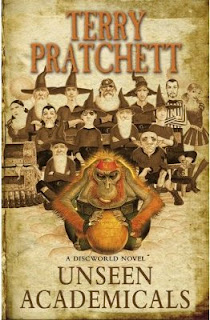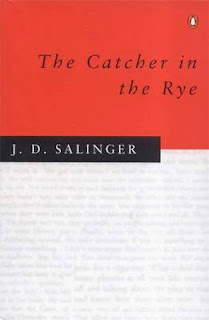The Card

After the feast, the wafer-thin mint. Arnold Bennett's The Card is just as funny as A Fraction of the Whole and its mood is refreshingly upbeat.
I picked up The Card on a visit to Didsbury with Mrs Tomsk at the start of summer. We stopped off at a tearoom that not only did a mean sausage sandwich, but transitioned seamlessly to a second-hand bookshop at the back. This is what heaven must be like, presuming God is a tea-loving bookworm.
One thing the holy high street would not stand for, however, is political posturing. The bookshop side was at first glance unthreatening, even welcoming. But the European election campaign had begun, and the proprietor was not discreet in his affection for the UK Independence Party. Posters and leaflets were everywhere, all inevitably featuring the 1953 winner of the Nobel Prize for literature. I wonder if he would appreciate his presence in a bookshop being reduced to flicking V-signs for the greater glory of UKIP.

The proprietor, of course, can dress his shop however he likes. But it struck me as out of place. Books, after all, are the symbol of reason, the opposite of braying election propaganda. And more to the point, why did he have to go and support a party I disagree with profoundly? I didn't want to get into an argument, so the only avenue for retaliation was to find a purchase that clearly demonstrated how much I opposed him. Perhaps a biography of Jacques Delors. But the search was fruitless, and I left with an unprovocative mix of Mark Twain treasury and The Card.
Would Arnold Bennett have been pro-European? Would he have looked at Britain's role in the world, its alternatives of becoming a strong voice in Europe or America's poodle, and chosen Europe? Would he have delighted in the ratification of the Lisbon treaty? It's difficult to say. He's been dead for a while. But he did live in Paris once, and was apparently keen on French writing. So let's put him down as a "maybe". That's considerably more evidence than we have for Churchill being a UKIP supporter.
I'd encountered Bennett before as a non-fiction writer, and he struck me then as sharp and witty. I'm happy to say that his made-up stuff is just as good. Much of it concerns the "Five Towns", a fictionalised Stoke-on-Trent, and The Card is also set there. It tells the story of the entrepreneur Denry Machin as he rises through Five Towns society as if attached to a helium balloon. His adventures along the way are enjoyably far-fetched, from a runaway pantechnicon (I had to look it up too) to inadvertent burglaries, newspaper wars and the conquering of Llandudno's summer season.
My fear with any book written in the olden days is that it will conform to the stereotypical Victorian format of long-winded descriptive passages occasionally interrupted by a bit of story. Thankfully, things seem to have loosened up by Edwardian times and The Card is very snappy indeed. When description is needed (as in the Countess's stately home), description is provided, but it's always just enough to illustrate and never enough to bore. Whole scenes are ruthlessly cut short (as at the church) when they no longer serve a purpose. The effect is comparable to watching His Girl Friday for the first time and realising that the modern world doesn't have a monopoly on ultrafast comedy.
The most obvious comparison is to P.G. Wodehouse, and there were moments when I half-expected a cow creamer to show up. The main difference between The Card and the average Wodehouse novel is that the latter is clearly set in a make-believe world, whereas The Card is grounded in the reality of Staffordshire life. It often reads like a work of social history, as when it describes the swagger of early car owners, the status of Llandudno as a must-visit destination, the onset of women smokers and the class structure of transatlantic sea journeys, among many other topics.
Bennett is better known for his serious novels, but on the evidence of this book he is also a very fine comic writer. And the last two lines of The Card are the best defence of comedy I have ever read. I won't spoil them here, but you can find them at the link below. I recommend you read the rest of the book first.
The Card by Arnold Bennett
First published 1911
Available as a free e-book from Project Gutenberg



Comments
Post a Comment